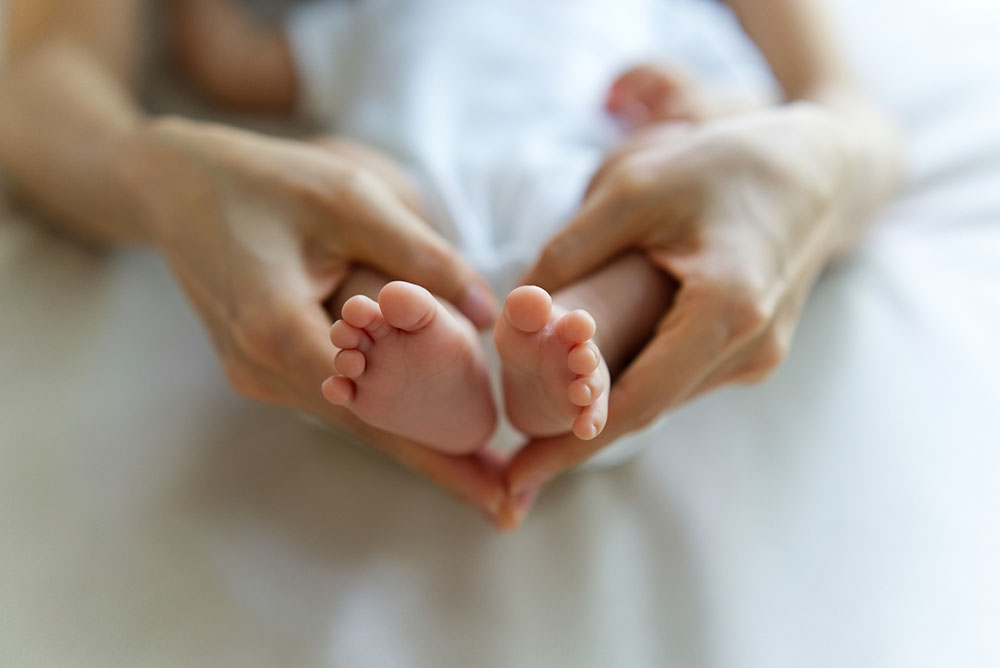I recently watched a National Geographic video - first time ever recorded - of 700…

How High Performers Can Manage the Risk of Postpartum Psychosis
The postpartum period is a time of adjustment and adaptation for the vast majority of parents. It’s a time to navigate new responsibilities and the many challenges of caring for a newborn.
It can be particularly stressful for mothers, who may be dealing with the physical recovery from childbirth, as well as hormonal changes and sleep deprivation.
Many women experience feelings of anxiety, overwhelm, and exhaustion during the postpartum period. For high performers, the heavy mental load they often carry can make this time uniquely challenging.
When you’re used to being able to handle it all, the symptoms of postpartum depression and sometimes even postpartum psychosis can wind up being downplayed… Even improperly treated.
What Is Postpartum Psychosis?
Postpartum psychosis is a severe mental health condition that can affect women in the weeks or months after giving birth. It’s a relatively rare condition that occurs in approximately 1–2 women per 1,000 births.1
This is in contrast to postpartum depression (PPD). Characterized by strong feelings of sadness, anxiety, and exhaustion, PPD is a more commonly-recognized condition that affects as many as 10 percent of women after giving birth.2
Considered a psychiatric emergency, postpartum psychosis is characterized by a rapid onset of symptoms like hallucinations, delusions, disorientation, and confusion. Women with postpartum psychosis may also experience mania, depression, and anxiety. In severe cases, they may be at risk of harming themselves or their children.
Unlike PPD, which can develop gradually and may be managed with therapy and medication, postpartum psychosis requires immediate treatment in a hospital setting. Treatment may include medication such as antipsychotic drugs and hospitalization for close monitoring and care.
The Role of Stress and Sleep Deprivation in Postpartum Psychosis
We know that high performers are uniquely susceptible to burnout. After all, when the going gets tough, the tough get really, really tired.
(That’s the saying, isn’t it..?)
High performers are used to putting their noses to the grindstone and just getting things done. They’re often used to being in high-profile positions and high-pressure situations. They tend to find these experiences motivating, and they certainly rarely shy away from a challenge.
But there’s such a thing as too much challenge, and when we don’t give ourselves the time to rest and recharge, our bodies can begin to react.
Both stress and sleep-deprivation are potential triggers for postpartum psychosis.4 With a new baby at home, a lack of adequate sleep is tough to avoid—so it becomes even more important to manage our stress as much as we can.
This requires two things that don’t necessarily come easily to high-performing people: embracing our limitations and asking for help.
We can’t know for sure whether postpartum depression or psychosis will be something we’ll experience after the birth of a child. But we can try to manage the risk by setting realistic expectations for ourselves and seeking the support of our community and trusted healthcare providers during the postpartum period.
And remember, while “the postpartum period” is most commonly defined as the first six weeks post-birth, symptoms of PPD and postpartum psychosis can present as much as a year afterward! Give yourself the grace you need for as long as you need it.
Setting Realistic Expectations for the Postpartum Period
High-performing people can often expect superhero-like levels of productivity from themselves… Right? We tend to have a long history of being the one to raise our hand and say, “Don’t worry—I’ve got this!”
But setting realistic expectations for yourself after the birth of a child is one of best and most effective ways to engage in self-care and act with true self-compassion.
Here are some considerations to keep in mind during the postpartum period:
You need care, too.
It’s so easy to forget ourselves and focus entirely on the needs of our newborn child—but we need care as much as they do. This means getting enough rest, eating nutritious foods that fuel your body properly, and taking time for self-care activities like movement or light exercise, reading, taking a bath, or anything else that supports your mental and physical health.
You may need to ask for help from family members, friends, or healthcare providers in order to make this a reality—and it’s more than okay to do so.
Let “good enough” be your mantra.
We live in a world full of highly-curated social media feeds, and it’s easy to get caught up in what the postpartum period “should” look like. In reality, we need only prioritize our care and our child’s. Spend time getting enough rest and bonding with your newborn. Worry less about keeping the house spotless or cooking elaborate meals.
Create your own support network.
Aim to create a support network of family members, friends, and healthcare providers—both mental and physical—who can offer help and guidance during the postpartum period. Find doctors you trust, a therapist who can see you regularly, and loved ones or neighbors who can lend a hand with physical and/or childcare tasks around the house.
Building a Strong Support Network
Building a strong support network is essential during the postpartum period.5 This can include emotional support from a partner or family member, practical support with childcare or household tasks, and professional support from healthcare providers.
Seeking support can be particularly challenging for high performers who may be used to doing everything on their own! But recognizing the importance of support and seeking it when needed is an important step in managing the risk of postpartum psychosis and promoting recovery.
If you don’t already have a strong support system, it can feel daunting to think about building one—but you don’t have to do it on your own. Healthcare providers can provide referrals to support groups, therapy providers, and other resources. Friends and family members can offer emotional support and practical help with tasks such as childcare and household chores.
If you aren’t sure you’ll be able to regularly and reliably identify your own support needs, solicit a friend who can commit to checking in often and helping to organize help for you when you need it.
The Stigma of Postpartum Psychosis
Unfortunately, there’s still a significant amount of stigma surrounding mental health conditions, and postpartum psychosis is no exception.
Any stigma can be a barrier to seeking help—especially if you’re used to appearing capable and in-control the majority of the time.
High performers may fear being judged or stigmatized if they disclose their struggles with postpartum mental health; this can lead to a delay in seeking treatment. In some cases, women may not seek treatment at all, which can have serious consequences for their health and well-being.
Advocating for Appropriate Care as a High Performer
High performers who are struggling with postpartum psychosis may face additional challenges when seeking help due to the tendency to be dismissed or misunderstood by healthcare providers.3
In some cases, high performers who appear to “have it all together” may be wrongly diagnosed as simply anxious, with their symptoms not taken as seriously as they should be.
It’s important for healthcare providers to recognize that postpartum psychosis can affect women from all backgrounds and walks of life, including high performers who may seem “too healthy” for anything more serious to be occurring.
And it’s important for high performers to trust their own instincts—if you feel like you’re struggling more than your provider is acknowledging, don’t hesitate to seek care elsewhere.
If you’re a high performer struggling with PPD or postpartum psychosis, know that you’re not alone. Know, too, that you’ve done nothing wrong, and there’s nothing to blame yourself for. We don’t yet know everything there is to know about these conditions or why they impact some women and not others…
What we do know, however, is that the deciding factors are not within our individual control.
All we can do is try to manage our risks—and speak openly about our struggles to reduce the stigma and work toward better support and care for women and children.
High Performers Can Seek Help for Postpartum Psychosis
If you’re concerned about your risk factors for postpartum psychosis or struggling with postpartum depression, help is out there! Reach out to your healthcare provider or schedule a consultation with a qualified clinical psychologist today.
Endnotes
1 https://www.ncbi.nlm.nih.gov/books/NBK544304/
2 https://www.cdc.gov/reproductivehealth/depression/index.htm
3 https://www.northwell.edu/katz-institute-for-womens-health/articles/gaslighting-in-womens-health
4 https://keatsuat4x.kcl.ac.uk/pluginfile.php/8014471/mod_resource/content/1/AasEtAl.pdf
5 https://www.ncbi.nlm.nih.gov/pmc/articles/PMC5659274/


